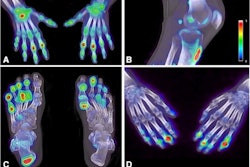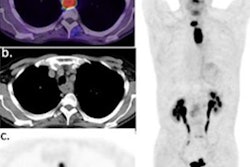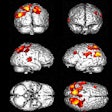Thursday, December 1 | 9:30 a.m.-10:30 a.m. | R3-SSNR15-1 | Room N226
In this neuroradiology session, researchers will present details on an amyloid PET-based deep-learning algorithm for predicting Alzheimer's disease dementia that is generalizable across different amyloid PET radiotracers.A group at Yonsei University College of Medicine in Seoul, South Korea, led by presenter Dr. Yoon Seong Choi collected PET images of 1,767 patients enrolled in several Alzheimer's disease clinical trials networks and who had underwent PET scans with the amyloid tracers florbetapir, florbetaben, flutemetamol, and Pittsburgh compound B (PiB).
They then developed and trained a convolutional neural network (CNN) to detect the conversion in patients from mild cognitive impairment (MCI) to Alzheimer's disease. To evaluate the agreement of Alzheimer's disease probability among different tracers, they calculated an intraclass correlation coefficient (ICC) using amyloid PET images with paired florbetapir-PiB (n = 46), florbetaben-PiB (n = 35), and flutemetamol-PiB (n = 74) scans.
In discriminating Alzheimer's disease from normal controls, the CNN achieved areas under the curve (AUCs) of 0.997-1.000 and accuracies of 90.5% to 100% in two different datasets. In the prognostication of MCI, the model achieved c-indices of 0.810, 0.748, and 0.671 in three different datasets.
The AD probability remained independently prognostic among nonimaging clinical information, across different datasets and tracers (p < 0.001 for all). The ICC for Alzheimer's disease probability was 0.915, 0.927, and 0.913 for the paired sets of florbetapir-PiB, florbetaben-PiB, and flutemetamol-PiB images, according to the findings.
"Our deep learning-based model has the potential to harmonize amyloid PET images with different tracers, and improve the diagnosis of [Alzheimer's disease] and prognostication of MCI," Choi noted.
Sit in on this Thursday morning talk for more information.





















